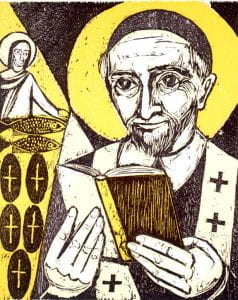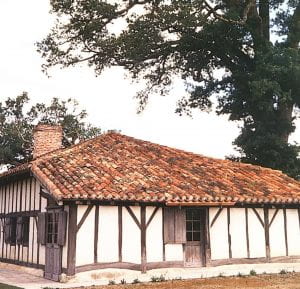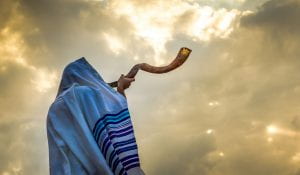
 “We must go forward without becoming discouraged…” — Vincent de Paul
“We must go forward without becoming discouraged…” — Vincent de Paul
As the days get shorter and the weather gets colder, many of us reflect upon the past year and on what lies ahead. In numerous spiritual traditions, we are encouraged to pay attention to the environmental changes around us as signs and reminders of the Divine plan. While change is a natural and constant part of our lives, it can often be anxiety producing. We look at changes in the world and our country, or perhaps changes in higher education broadly and here at DePaul, and we may not always feel confident it is for the better. Sometimes we may wish things would just stay the same. Even if we know the imperfections, there is comfort in familiarity.
Saint Vincent witnessed tremendous change in the world around him. Seventeenth-century France was a society often in a state of conflict and flux. A key component of Vincentian spirituality is paying attention to the signs around us, carefully discerning a path forward, then taking action and trusting in divine providence. Vincent encouraged his followers in times of change to look for how they were being invited forward, believing that “…on God’s road, not to advance is to fall back since man never remains in the same condition.” (CCD, 2:146) In other words, the world changes and so must we.
As you reflect upon the past year, on the things you are grateful for, as well as the challenges you have faced, what have you learned that can inform your course of action for times ahead? Where are your seeds of hope and possibility? Knowing the nature of our world, how can you best prepare for the change ahead while maintaining faith in the midst of uncertainty?
Citation: 1307, “To René Alméras,” 3 January 1651, CCD, 4:139; and 490, “To Etienne Blatiron, 9 October 1640, CCD, 2:146.
Reflection By:
Abdul-Malik Ryan
Assistant Director and Muslim Chaplain
Division of Mission and Ministry
———————————
Did you know that there is a whole host of Vincentian mission based resources available digitally? Visit the “All Things Vincentian” page, spend some time browsing, and learn more about DePaul’s Vincentian heritage during the winter holidays.
*** *** *** *** *** *** ***
In the spirit of today’s reflection, you are invited to a day of reflection, renewal and community building for DePaul faculty and staff:
A Day with Vincent
Thursday, December 5th, 2019 from 9:00 am to 4:00 pm
Cenacle Retreat and Conference Center, 513 W. Fullerton in Lincoln Park.
A Day with Vincent is an opportunity for DePaul staff and faculty to find spiritual enrichment and community, to reconnect with a sense of calling, and to deepen their understanding of our Vincentian mission. The day is free of charge and meals will be provided. Participants will be back to campus by 4:30 pm with transportation provided as needed. Now in its 12th year, A Day with Vincent helps participants find time and space within their busy lives to reflect deeply on Vincentian spirituality and mission while enabling them to engage with colleagues from across the university. Led by professional staff from the Division of Mission and Ministry and attended through the years by over 700 DePaul faculty and staff, the program is welcoming and supportive to those of all religious, spiritual and philosophical backgrounds and starting points.
In the quiet of December, as the academic quarter and calendar year draw to a close and the holidays approach, we hope you’ll join us for this opportunity to grow both personally and professionally, individually and communally.
WEBLINK FOR REGISTRATION: http://go.depaul.edu/daywithvincent
 Vincent de Paul suggested that we focus our resolutions on those that help us acquire the spirit of the mission entrusted to us.
Vincent de Paul suggested that we focus our resolutions on those that help us acquire the spirit of the mission entrusted to us.






